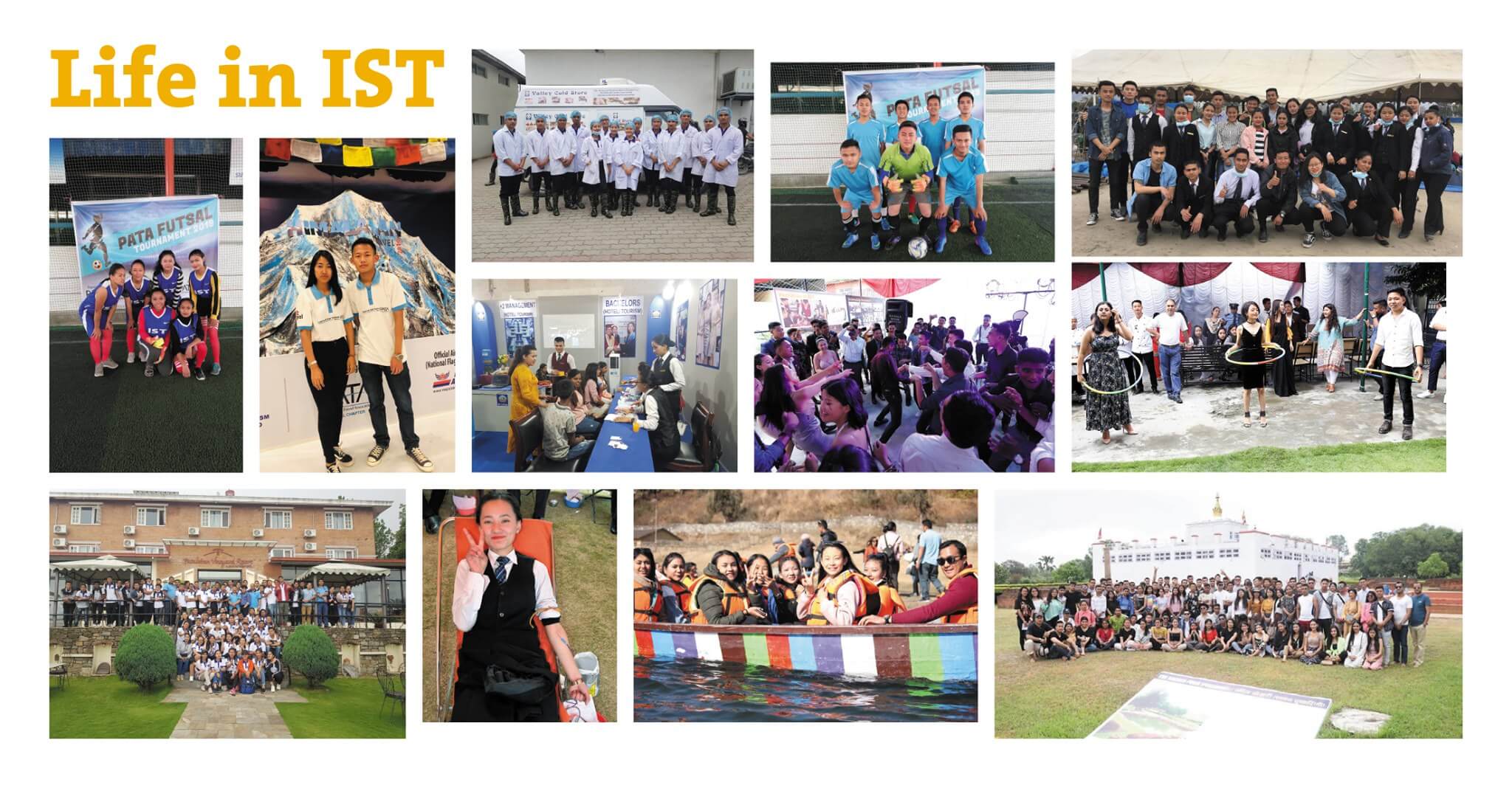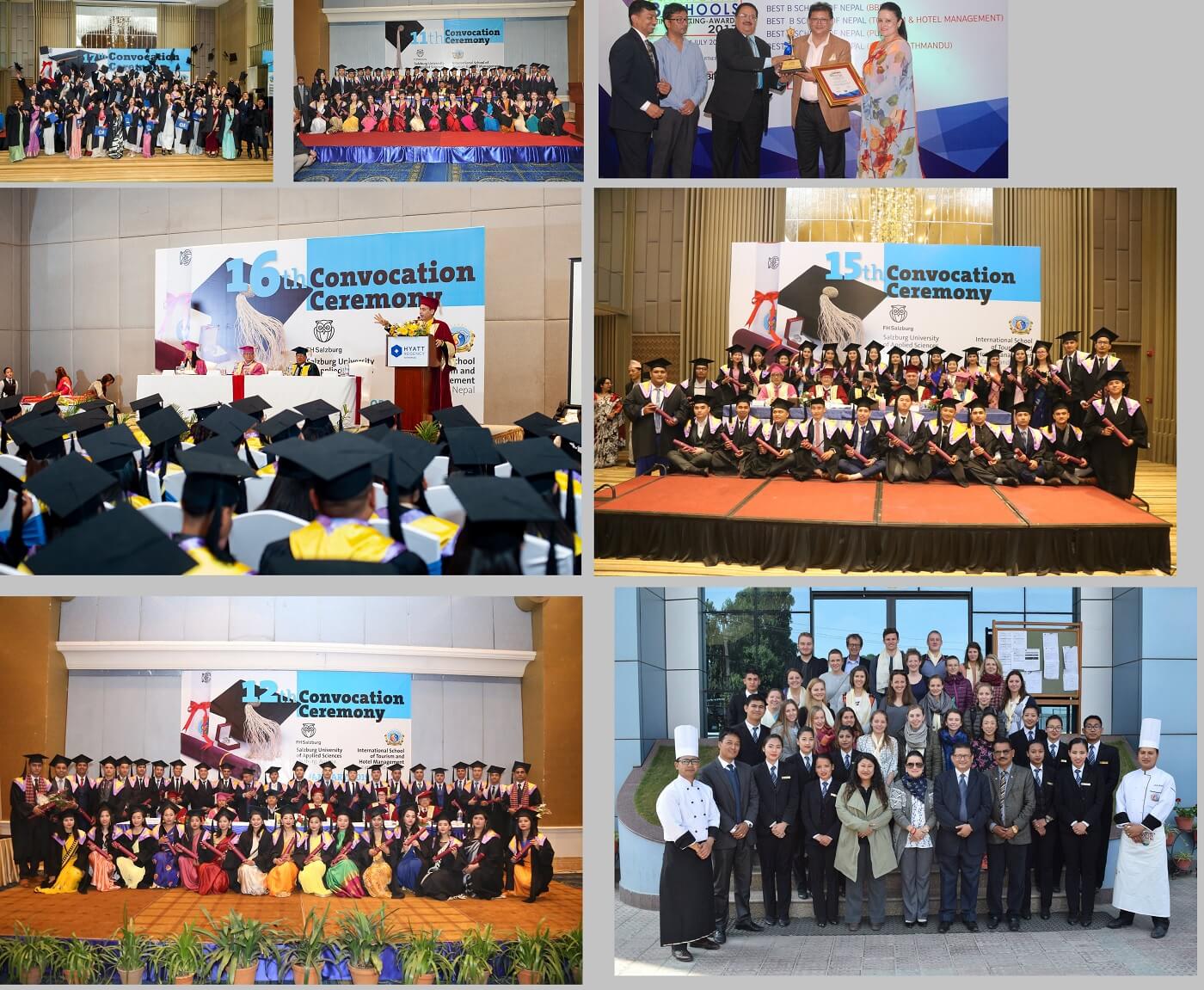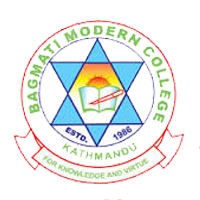Overview
IST College (International School of Tourism and Hotel Management), Kathmandu, is a QAA-certified institute accredited by the University Grants Commission (UGC) Nepal. The college runs Tribhuvan University programs in BHM, BTTM, and MTTM, and maintains academic links with Salzburg University of Applied Sciences, Austria.
Founded in 2004, the college brings together classroom learning and industry practice. The academic model blends management subjects, culinary and service labs, property-management systems training, and field exposure across hotels, airlines, and travel companies. Credit transfer and progression options are available through partner institutions across Europe, Australia, North America, and Asia.
Quick Highlights
-
Established: 2004, Kathmandu, Nepal
-
Accreditation: QAA-certified (UGC Nepal)
-
University Affiliation: Tribhuvan University (BHM, BTTM, MTTM)
-
Academic Links: Salzburg University of Applied Sciences, Austria; Salzburg Tourism School
-
Programs: BHM, BTTM, MTTM; FHS Diploma tracks; 10+2 Management with hotel/tourism focus
-
Facilities: PMS lab, demo restaurant and bar, practical kitchens, practical bar, AV hall, computer lab, library, mock-up room, multipurpose and conference halls, indoor/outdoor games, cafeteria, lockers, transport
-
Internships: Nepal and abroad (e.g., Japan, UAE, Qatar, Kuwait, Bahrain, Malaysia, India)
-
Career Support: Campus recruitment, industry coordination, job placement assistance
-
Scholarships: Merit, financial assistance, special categories, alumni, corporate
-
Finance Option: Bank financing for eligible students
-
Language of Instruction: Primarily English with support for Nepali where relevant
-
Student Pathways: Credit transfer/articulation and top-up options with global partners
Academic Programs Offered
Tribhuvan University Programs
Bachelor of Hotel Management (BHM)
-
Duration and Load: Four years (TU), with a structured mix of hospitality theory, lab work, and industry practice.
-
Learning Scope:
-
Food production, bakery, kitchen operations
-
Food and beverage service and cost control
-
Front office management and revenue concepts
-
Housekeeping operations and standards
-
Hospitality accounting, managerial economics, HR, marketing, business communication
-
Property Management Systems (PMS), basic analytics for rooms and F&B
-
-
Practical Components: Culinary and service labs, demo restaurant and bar, PMS lab sessions, supervised internships in Nepal or overseas properties.
-
Assessment: Term examinations (TU), practical evaluations, projects, and logbooks for training exposure.
-
Graduate Outcomes: Entry- and mid-level roles in hotels, resorts, cruise lines, restaurants, catering, and hospitality operations; progression to MTTM or other postgraduate study.
Bachelor of Travel and Tourism Management (BTTM)
-
Duration and Load: Four years (TU) with strong industry engagement and field-based study.
-
Learning Scope:
-
Travel operations, ticketing basics, tour design and costing
-
Destination studies, sustainable tourism, policy and planning
-
Hospitality services, airline and airport operations overview
-
Tourism marketing, research methods, entrepreneurship
-
Itinerary building, group handling, and travel technology tools
-
-
Practical Components: Field visits to tourism hubs, attachments with travel companies/airlines, project work tied to current market trends.
-
Assessment: TU examinations, assignments, field reports, and presentations.
-
Graduate Outcomes: Roles in tour operations, DMCs, airlines, airports, travel technology firms, tourism boards, and hospitality sales.
Master of Travel and Tourism Management (MTTM)
-
Duration and Load: Two years (TU) targeting leadership and managerial competencies for the tourism sector.
-
Learning Scope:
-
Tourism economics and research
-
Strategic management, policy, and destination governance
-
Sustainable models, product development, and e-distribution
-
Project work, seminar presentations, and industry cases
-
-
Practical Components: Research project or internship tailored to employer or sector needs.
-
Graduate Outcomes: Supervisory to managerial roles in airlines, hotel/tourism groups, public bodies, NGOs/INGOs working in tourism, consulting, and academia.
Diploma and School-Level Pathways
FHS Diploma in Hotel Management
-
Duration: Three years, progressing from foundational skills to supervisory competencies.
-
Coverage:
-
Culinary foundations, cold and hot kitchen, bakery
-
Restaurant service, beverage knowledge, bar operations
-
Front office and housekeeping standards
-
Hospitality English, customer relations, basic accounting, and IT
-
-
Internships: Structured placements in Nepal or abroad for skill-building and exposure.
-
Progression: Higher Diploma and potential top-ups to Bachelor’s and Master’s degrees in Nepal or partner countries, subject to partner criteria.
FHS Diploma in Travel and Tourism Management
-
Duration: Three years with travel, ticketing, and destination modules.
-
Coverage:
-
Tour operations, MICE basics, itinerary planning
-
Sustainable tourism, policy frameworks
-
Travel sales, digital presence, and customer care
-
-
Internships: Attachments with travel companies, airlines, or destination operators.
-
Progression: Higher Diploma and degree top-ups through academic partners, subject to rules in effect at the time of transfer.
Ten Plus Two (10+2) Management with Hotel/Tourism Focus
-
Duration: Two years with management fundamentals and hospitality exposure.
-
Coverage:
-
Principles of management, accounting, business studies
-
Introductory hospitality operations, service ethics, basic culinary/service labs where applicable
-
-
Outcome: Solid base for BHM/BTTM or related business programs; early exposure to hospitality discipline and work culture.
Admission Process
I. Eligibility Requirements
-
Degree Programs (TU): As per Tribhuvan University rules for BHM, BTTM, and MTTM.
-
Diploma/10+2: As per program-specific academic prerequisites. The college admission office provides the current criteria during counseling.
II. Step 1 – College Visit and Counseling
-
Prospective students and guardians meet academic counselors to review courses, fee information, property/lab visit plans, internship routes, and graduate outcomes.
-
Counseling helps match program choice with a student’s interest, academic record, and career goal.
III. Step 2 – Form Submission (Documents)
-
Completed enrollment form
-
Curriculum Vitae/Resume
-
Copy of citizenship (or relevant ID)
-
Three recent passport-size photos
-
SEE/SLC mark sheet and school leaving/transfer certificate
-
Character certificate
-
+2 transcript (for Bachelor’s); Bachelor’s transcript (for Master’s) where relevant
-
Motivational essay stating reasons for choosing the program
IV. Step 3 – Entrance Examination
-
Written test (approx. 1.5 hours) to check numerical, communication, and program-related basics.
-
Psychometric test to understand individual aptitude for service and teamwork.
V. Step 4 – Group Discussion and Personal Interview
-
Shortlisted candidates participate in a moderated discussion to present viewpoints on a given topic.
-
Personal interview assesses program fit, interest in hospitality/tourism, and study plan.
VI. Step 5 – Selection for Admission
-
Selected applicants receive an enrollment slip and a code-of-conduct commitment letter.
-
Admission is confirmed on fee settlement within the notified timeline.
VII. Fee and Payment
-
Fee structure, payment stages, and deadline schedule are provided during counseling.
-
Bank financing is available for eligible students as per institutional policy and bank rules.
VIII. Orientation and Class Commencement
-
The college announces dates for orientation, academic calendar, class start, and initial lab sessions.
Teaching Faculty and Learning Methodology
-
Faculty Mix: Full-time faculty, visiting academics, and industry professionals with hotel and tourism backgrounds.
-
Learning Approach:
-
Concept classes for management, finance, marketing, and research
-
Lab-based sessions for culinary, service, and PMS tools
-
Case studies and role plays for guest relations, conflict handling, and service recovery
-
Field visits to hotels, airports, tourism boards, and travel firms
-
-
Assessment Variety: Written exams, practical checks, viva, projects, and reflective journals during internships.
-
Skill Development: Communication, teamwork, customer service, hygiene and safety, revenue awareness, and ethical practice.
-
Language Support: Academic English and hospitality terminology reinforced through assignments and presentations.
Infrastructure and Learning Facilities
-
PMS Lab: Training on hotel software for rooms, reservations, and basic revenue tracking.
-
Practical Kitchens: Hot, cold, and bakery sections with safety and hygiene protocols.
-
Demo Restaurant and Bar: Service sequence, menu knowledge, beverage basics, and billing practice.
-
Practical Bar: Beverage preparation and service standards.
-
AV Hall, Multipurpose Hall, Conference Hall: Events, seminars, guest lectures, and mock conferences.
-
Computer Lab with Internet: Research, assignments, itinerary building, and presentation work.
-
Mock-up Room: Housekeeping standards, room setup, and inspection practice.
-
Library: Texts, journals, and reference materials across hospitality, tourism, and management.
-
Sports and Recreation: Indoor and outdoor games for student well-being.
-
Cafeteria: Hygienic meals at campus.
-
Lockers and Transport: Personal storage and transport support on stated routes.

Student Life and College Experience
-
Orientation Week: Academic briefing, campus tour, safety session, and interaction with seniors.
-
Clubs and Activities: Culinary club, barista group, tourism forum, and cultural events.
-
Volunteering and Outreach: Event support, local tourism awareness, and community initiatives.
-
Mentoring: Faculty and senior-student guidance for study plans, internships, and placements.
-
Wellness: Sports, recreational activities, and time-management guidance around practical labs and classes.
Extracurricular Activities (ECA)
-
Culinary Trials and Showcases: Menu planning, costing basics, and plating practice.
-
Service Competitions: Table setup, sequence of service, and communication drills.
-
Tourism Field Assignments: Destination surveys, guest feedback collection, and short travel reports.
-
Seminars and Guest Talks: Hotel GMs, HR managers, chefs, and travel entrepreneurs.
-
Cultural and Festive Events: Student-led programs to build teamwork and event-planning skills.
Scholarships and Financial Support
-
Merit Scholarship: Based on academic record and entrance performance.
-
Financial Assistance Scholarship: For applicants with documented need as per policy.
-
Special Scholarship: College-specific categories announced in admission cycles.
-
Alumni Scholarship: For students linked to the institution’s alumni community.
-
Corporate Scholarship: In collaboration with industry partners when available.
Applicants should check the current call, criteria, and required documents at the admission office. Bank financing support can be explored by eligible students following institutional and bank procedures.
Internships and Career Services
Internship Routes
-
Nepal: Properties such as Marriott Kathmandu, Hyatt Regency Kathmandu, The Soaltee, Yak & Yeti, Dwarika’s, Aloft, Radisson, Gokarna Forest Resort, Hyatt Place, The Everest Hotel, Dusit Princess, and regional hotels across Jhapa and Janakpur.
-
Abroad (sample list):
-
Japan: Tsuruga Resort Akanko Onsen, Shiretoko Daiichi, Manseikaku Lakeside Terrace, Jozankei Manseikaku, Karakami Hotels & Resort, Hotel Bearmonte
-
Middle East: Rosewood Abu Dhabi, Atlantis The Royal (Dubai), Radisson Blu Dubai Creek, Gulf Court Hotel Business Bay, Crowne Plaza Dubai Jumeirah, Ramee properties, Vida Beach Resort Bahrain, The Merchant House Bahrain, Hilton Doha The Pearl, and others across Qatar and Kuwait
-
South and Southeast Asia: Genting Highlands and Pacific Regency (Malaysia), Vivanta Coimbatore and The Gateway (India), partners in Thailand including The Peninsula Bangkok and COMO Metropolitan
-
Hong Kong and selected European partners as listed during the cycle
-
Internship Duration: Typically 6–12 months depending on program and destination. Training includes rotations in kitchen, service, front office, housekeeping, and selected administrative desks.
Career Services
-
Placement Support: Coordination with hotels, travel companies, and allied firms; campus recruitment updates sent to graduates.
-
Guidance: CV reviews, interview coaching, and role-fit counseling for hotel operations, sales, events, aviation support, and tourism services.
-
Alumni Network: Graduates working in hotels, airlines, cruise, and education; alumni engagement supports mentoring and referrals.
Achievements and Institutional Milestones
-
QAA Certification by UGC Nepal, indicating adherence to national quality assurance standards.
-
Continued delivery of Tribhuvan University programs in hospitality and tourism at Bachelor and Master levels.
-
Global internship pipeline with long-standing partner properties and travel organizations.
-
Expansion of partner universities for credit transfer, higher study, and top-up opportunities.
-
Consistent participation in hospitality events, academic seminars, and student showcases.
International Relationships and Credit Transfer
Partner institutions cited by the college include:
-
Salzburg Tourism School and Institute of Tourism and Hotel Management (Austria)
-
Salzburg University of Applied Sciences (Austria)
-
Southern New Hampshire University (USA)
-
International College of Hotel Management, Adelaide (Australia)
-
Charles Darwin University (Australia)
-
Centennial College (Canada)
-
Griffith College Dublin (Ireland)
-
Sanya Aviation and Tourism College (China)
-
Rajabhat University and Shinawatra University (Thailand)
-
University of Central Lancashire (UK) and other listed partners
Students should consult the academic office for the latest partner list, transfer rules, and top-up requirements, as policies differ by program, year, and country.
Why Choose IST College?
-
QAA-Certified and TU-Affiliated: Meets national quality benchmarks and offers recognized university degrees (BHM, BTTM, MTTM).
-
Applied Learning: Kitchens, demo restaurant and bar, PMS lab, mock-up room, and service simulations build day-to-day competence.
-
Internship Depth: Choices across Nepal and multiple international destinations with clear role expectations and mentoring.
-
Academic Links and Pathways: Transfer and top-up options with partner universities in Europe, Australia, North America, and Asia.
-
Focus on Service Culture: Communication, hygiene, safety, teamwork, and guest handling woven into practical tasks and reflection.
-
Career Support: Coordinated placement efforts and regular industry touchpoints.
-
Facilities and Student Support: Labs, library, events infrastructure, sports and recreation, cafeteria, transport, and locker access.
-
Scholarships and Financing: Multiple scholarship categories and bank financing for eligible applicants.
Conclusion
IST College presents a structured pathway for hospitality and tourism education in Nepal through TU-affiliated degrees, diploma tracks, and an internship-rich academic model. The campus infrastructure supports both kitchen and service mastery, while PMS and mock-room training link operations with data and standards. International partners create avenues for credit transfer and further study, and the career services team helps graduates connect with roles across hotels, restaurants, travel firms, airlines, and tourism organizations.
Prospective students and guardians can begin with a college counseling session to match program choices with personal goals, review the latest internship roster, go over scholarship and financing options, and understand assessment and workload. With clear entry routes, documented procedures, and practical exposure, the college offers a defined framework for building a career in hotel, travel, and tourism services.
Contact IST College's administrative office for detailed information on the course, admissions, location, fees, scholarships, facilities, counseling, or eligibility. You can also stay updated, share reviews, explore academic courses, ask questions, and join discussions.
Contact Address:
Location: Gyaneshwor, opposite the German Embassy, Kathmandu, Nepal
Phone: +977-1-4434350, +977-1-4534185
Email: info@istcollege.edu.np
Website: https://istcollege.edu.np




















You need to login to comment.